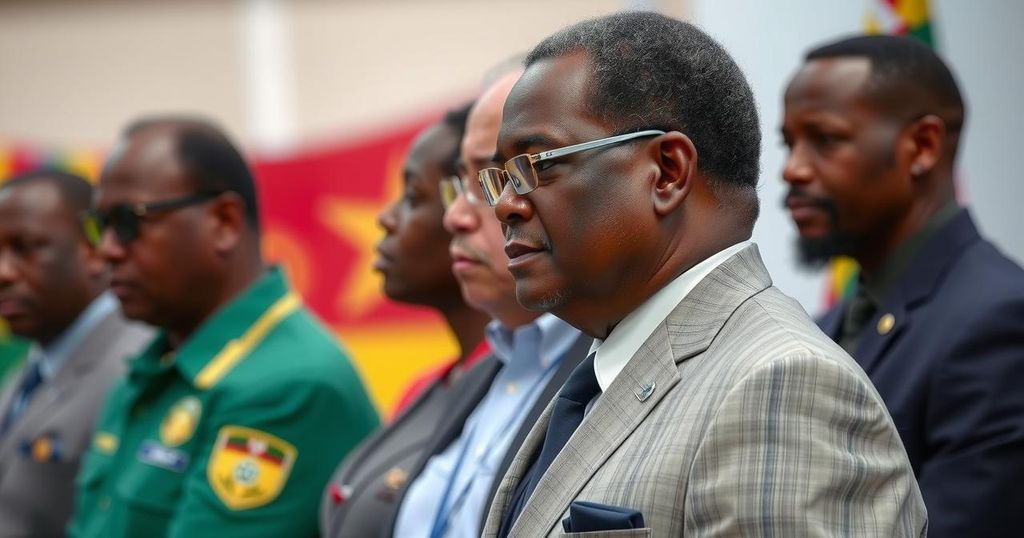Following controversial electoral results, Mozambique has experienced severe post-election violence resulting in numerous fatalities and widespread displacement. The ruling party, Frelimo, has been criticized for election irregularities, leading church leaders in South Africa to call for regional intervention and humanitarian assistance to address the crisis and restore stability.
Protests in Mozambique erupted following the announcement of election results that confirmed the ruling party, Frelimo, securing its continued dominance for nearly half a century. The newly formed opposition party, Podemos, led by Venancio Mondlane, vehemently opposed the electoral commission’s declaration, labeling the electoral process rife with fraudulent activities. Reports from civil society indicate over 130 fatalities linked to violent confrontations with law enforcement since the election on October 9.
On December 24, the Constitutional Council of Mozambique upheld Frelimo’s victory, a decision that prompted grave concerns among South African church leaders regarding the subsequent upheaval. In a stark joint statement, they detailed the violence gripping numerous cities, including looting, arson, and the systematic targeting of security forces, creating an environment of fear and distrust among the populace.
The South African Council of Churches (SACC) reported alarming statistics, including over 200 fatalities due to widespread violence disrupting the lives of Mozambicans, especially in urban centers. This violence included not only attacks on properties but also the destruction of essential food supplies in a country already grappling with food insecurity. The resultant chaos has led to significant displacement, pushing thousands to flee to neighboring nations such as Angola and South Africa.
Garnering international attention, SACC members urged for immediate action from the Southern African Development Community (SADC) to address the escalating instability, emphasizing that the political turmoil in Mozambique does not merely affect its borders. The church leaders reaffirmed their commitment to humanitarian assistance and ongoing dialogue between political factions as a means to restore order and promote reconciliation within Mozambique.
Ultimately, the SACC underscored the urgent need for action to safeguard lives and ensure the stability of the Southern African region against the backdrop of rising tensions and potential humanitarian crises. They stressed the necessity of collaborative efforts aimed at prioritizing the well-being of the people affected by this turmoil.
The backdrop of this article revolves around the recent presidential elections in Mozambique, which were met with widespread allegations of fraud by opposition parties and civil society observers. The ruling party, Frelimo, has maintained a strong grip on power since its independence in 1975, leading to increasing tensions and unrest among the populace, particularly after the October 9 elections. This unrest has escalated into violence, prompting concerns from community and religious leaders regarding the safety and stability of Mozambique.
In summary, the situation in Mozambique reflects a profound crisis following contested election results, leading to violence that has inflicted serious harm on communities. South African church leaders are advocating for immediate regional intervention to restore peace and highlight the urgent need for humanitarian aid amid widespread displacement and insecurity. With ongoing discussions for unity and resolution among political factions, it remains imperative that the well-being of Mozambicans is prioritized amid this turmoil.
Original Source: www.aciafrica.org






